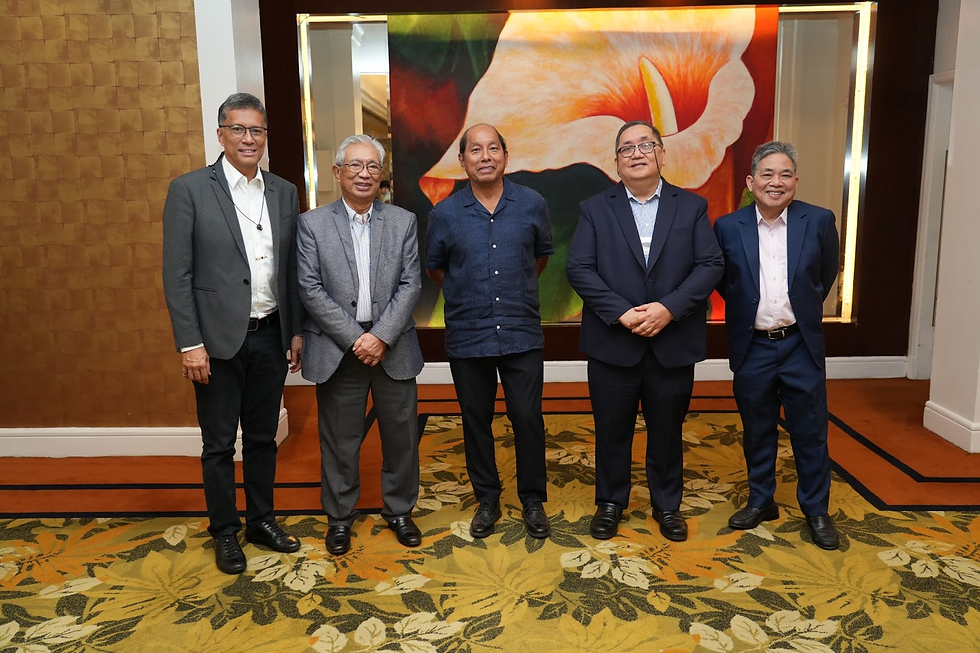TOBACCO SIN TAX REVENUES DROP BY 20% IN 2011, HIGHLIGHTS FLAWS IN TAX LAW— DOF, AER
- Action for Economic Reforms
- May 6, 2012
- 2 min read
Press Release— Action for Economic Reforms— 6 May 2012
Although Philip Morris Fortune Tobacco Corporation (PMFTC) has argued that reforming our excise levies on cigarettes would spur a free-fall in tax revenues, new data from the Department of Finance reveals that these already plummeted by 20% in 2011.
According to the DOF, collections from sin taxes— which totaled around P31.5 B in 2010—dramatically declined to an estimated P25.4B in 2011.
“This fall in revenues proves that our current excise tax scheme for tobacco is structurally flawed, and is in need of immediate changes,” said DOF Undersecretary Jeremias Paul. “Although PMFTC has claimed that nothing is wrong with our sin tax system, the figures show how vulnerable this system is to being abused.”
Throughout 2012, tobacco titan PMFTC has questioned the need for “unreasonable” reforms in our cigarette tax regime. It has argued that a 31% increase in sin tax collections in 2010 has provided ample proof that the current sin tax law, RA 9334, has been successful at raking in public revenues.
Yet a harder look at collections since the legislation of RA 9334 has challenged this. “Actually, our collections since 2004 have been badly see-sawing because of a practice of tobacco companies called ‘front-loading,’”, said Paul. “Before revenues rose in 2010 and 2008, they fell by 13% in 2009, and 12% in 2007— the years when taxes were raised.”
“This is the worst fall yet in for our tobacco sin tax revenues. It’s a tell-tale sign that the system is structurally defective. That’s why we need the Abaya reform bill to fix this,” he added.
Front-loading has been a constant phenomenon in the Philippine cigarette market since 2004. Because RA 9334 prescribed small tax increases on tobacco products every two years, companies like PMFTC have concentrated their sales between the application of these higher, though tiny, tax rates.
This, in turn, has permitted tobacco firms to avoid having most of their sales bear the full weight of heightened excise levies. Combined with other well-known flaws of the present sin tax law, like a multi-tiered system which protects old brands at 1996 tax rates and non-indexation to inflation, the current tax structure has failed to foster a fiscal environment of fair competition and buoyant tax revenues.
“Unless the Abaya sin tax bill is passed,” argued Jo-ann Latuja, senior economist of Action for Economic Reforms, “our country will continue to bleed billions of pesos in government funds, which could have been used for improving the lives of our fellow Filipinos”
Already, the DOF has estimated that at least P 19.5 billion has been lost in revenues from 2006 to 2010 due to cigarette consumption that has merely downshifted from higher to lower-priced brands— a trend which the current multi-tiered system has encouraged. Moreover, as the present regime still allows most smokers to switch to cheaper products, instead of quitting outright, it has been unable to stem rising levels of tobacco use among Filipinos.
“The numbers are just indisputable: the Abaya reforms are vital to fixing this faulty tax system, while lessening consumption of the number one cause of death in our country today,” Latuja maintained. “If this bill is not passed, the revenue losses could be the least of our concerns, since a health crisis is already brewing in our midst that endangers the young and poor populations of our country.”



